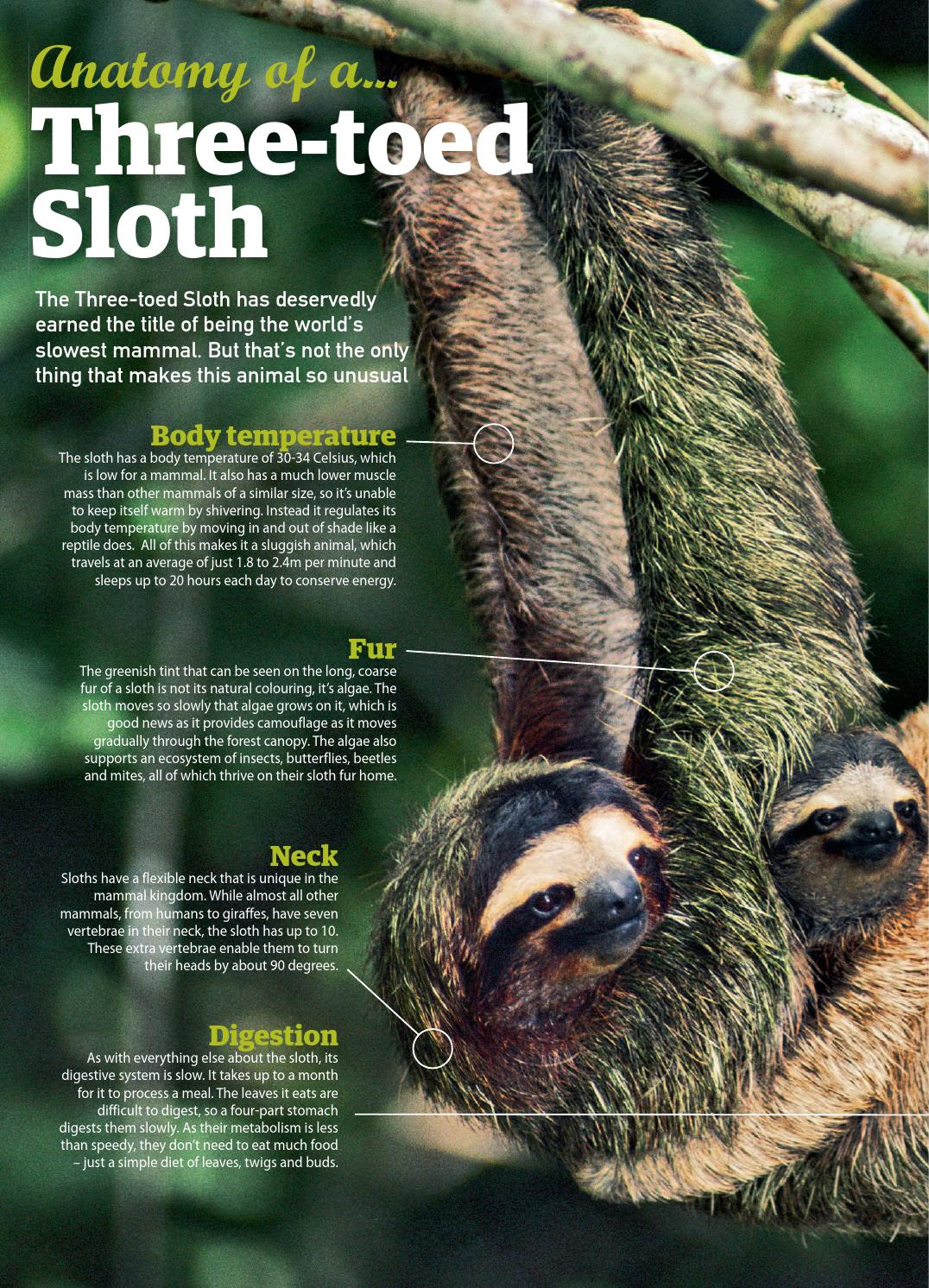However, sloths have developed a digestive system to treat these highly indigestible leaves. Their stomachs, like the stomachs of cows, have multiple chambers and contain a mixture of bacteria that help slowly break down the leaves. It takes two weeks for sloths to digest a single meal. This is the slowest digestion time in mammals. The main reason sloths are so slow is because of their diet. The majority of their diet consists of leaves, shoots and shoots. These foods do not provide large amounts of energy to sloths, so they move very slowly to save the energy they have. Chewing is when the animal flows back from the lumen into the mouth. These bolus or partially digested foods are so-called cuds. In other words, these animals do this for further chewing. When ruminants (animals that chew ruminants) ingest food, the food they consume goes directly to the lumen (the first part of the stomach). The ruminant digestive process begins with chewing and swallowing food. Ruminants do not completely chew the food they eat, but they eat or swallow as much as possible before swallowing the food.
slothsanctuary.com Изображение: slothsanctuary.com The sloth digestion process is the rest of the mammals. The difference is that the typical sloth actually digests food slowly. The average human digestive process can occur between 12 and 48 hours, while the sloth digestive process occurs in about 30 days.
Why are sloths slow to digest food?
The sloth digestion process works very slowly because food is difficult to process and body temperature fluctuates daily. Sloths adapt to leaf digestion problems in a variety of ways: their stomachs have complex pouches that make them suitable for storing bulky foods.
Which animal has the slowest digestive system?
Sloth digestion. Sloths are considered to be the slowest digestive of mammals, but the true rate of food passage from ingestion to excretion is still debated.
How do mammals that chew quads digest food?
These chewing mammals have four gastric chambers used for digestion. These seeds get their nutrition from plant products by adapting to a specific process called rumination. By the action of ruminants, they ferment and regurgitate food and chew it before the main digestive process.
How do ruminants digest food?
By the action of ruminants, they ferment and regurgitate food and chew it before the main digestive process. The digestive process of ruminants is completely different from that of humans.
How are sloths different from other animals?
Due to the nature of sloths, they save energy and move slower than any other mammal on the planet. This modest pace means that sloths usually do not move more than 125 feet (38 meters) in a day, and in rare cases they may be on the ground, but only crawl 1 foot (30 cm) per minute. not here.
What kind of digestive system does a sloth have?
However, like many herbivorous mammals, sloths have a multi-chambered stomach filled with symbiotic bacteria that can break down cellulose. Sloths digest more slowly than eating food. In fact, according to the Jacksonville Zoo in Florida, sloths can take up to a month to digest a single meal. 2018
Why is the sloth's digestive system so slow?
The sloth digestion process works very slowly because food is difficult to process and the body is difficult to process. Temperatures fluctuate daily. .. They rely on the chemical processes used by the bacteria in the intestines to digest food. 2018
How long does it take for sloths to digest?
6. Sloths take 30 days to digest the leaves. Sloths have the lowest metabolic rate of any mammal, so it takes a long time to digest something.

Below you will find two helpful answers on a similar topic. 👇
What is a Cavvy of horses?How much milk a cow gives?
